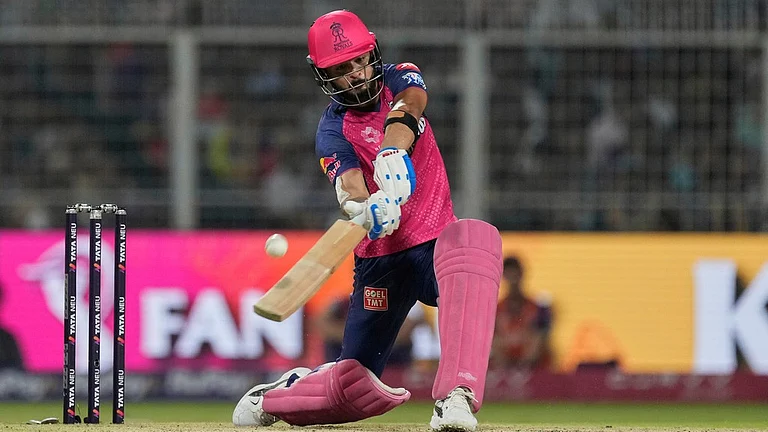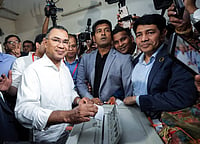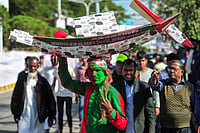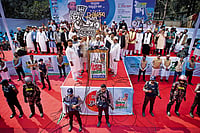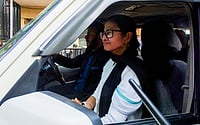Oxford Bookstore owner Priti Paul has good news for those who care for hard copies: post-pandemic, book sales are even better than what it was pre-pandemic. Their stores in Kolkata and Delhi have a daily average footfall of 500 readers. Founded in 1921, Oxford Bookstore is one of Kolkata’s prominent cultural landmarks.
Apeejay Group took over the bookstores in 1987 and expanded the footprint beyond Bengal. Paul has also been organising the Apeejay Kolkata Literary Festival for the past 13 years.
In an interview with Snigdhendu Bhattacharya, she explains why she believes online stores cannot replace physical bookstores and tells what it takes to keep bookstores alive.
Tell us what it feels like to own a bookstore with a century’s legacy?
People at one point of time had started writing off bookstores, saying that people are reading online, buying online, and that’s going to be the future. That myth has been shattered since the normalisation of life after the Covid-19 lockdowns were lifted. The footfall has increased significantly and we sold in the first five months what we used to sell in a year in the pre-pandemic time. So, it feels good to run a bookstore and I can happily give my opinion that bookstores are here to stay.
People love reading physical copies. Oxford has been an iconic place and we treat it as a gift to the city. We are celebrating the centenary a little late because it coincided with the pandemic. But now we are really strong and it feels great when you celebrate the centenary while going strong.
So, the post-lockdown business is better than usual?
I think people spent so much time online during the lockdown period that they are in revenge mode now. Just like there has emerged revenge tourism and revenge festivals, there is revenge reading – to make up for the losses during the lockdown.

How much has the sales in bookstores been affected by online stores offering 10 -33 per cent discount on books?
Not much. People love reading critical books, for which they come to the store. Even during Covid-19 lockdowns, it was mostly the self-help books or self-published books that were selling online or in digital versions. Currently, online sales of books are down and people are buying physical copies more from the stores. Besides, they offer high rebates only on a few bestselling books, maybe the top 100 titles, but they never have the range and depth of a bookstore. You can discover unknown books in a store.
What advantages does a bookstore offer over online stores?
Plenty. Apart from the greater range and depth on offer, you can take your time, browse different sections, take a look at a few pages and spend some time with a few books before deciding which one to buy. Bookstores are about a culture — a culture of spending time with books. It’s about exposing people to the world of books. In our store, groups of people come, spend time browsing books and reading, sit in Cha Bar for hours and maybe order one cup between the four of them. Maybe someone has ordered Arabic tea and we can draw the person’s attention to some Arabic books. Some leave without buying even after spending several hours. But that’s not the point. If the person liked the experience of spending time, he or she could come back. And possibly buy one or two books the next time.
Besides, it’s also where authors get to interact with their readers physically. So, authors, too, keep contacting bookstores for organising events.
How did the store visitors’ profile change over the past two decades?
We are a family bookstore. There are books for children, teenagers, the young and the old. So, we have always had a cross section of people visiting our store with their varied interests. Certain changes have taken place for sure. Books on architecture or paintings did not have much of a market. When we opened in Mumbai 22 years ago, we kept several art books there. Those were priced quite high considering the time, hovering over the Rs. 3,000 mark. We thought Mumbai had the money to buy such books but they did not sell for a long time. We were ahead of time. Now, these types of coffee table books on painting, photography and architecture have started selling.
Besides, a lot of young people are visiting bookstores. In Delhi, we have mostly young and college students and the same has been true for Mumbai. Kolkata still has visitors from all age groups. Another change is that, earlier, every city used to have a set of 200-300 people who were the main store visitors. But now, people beyond that
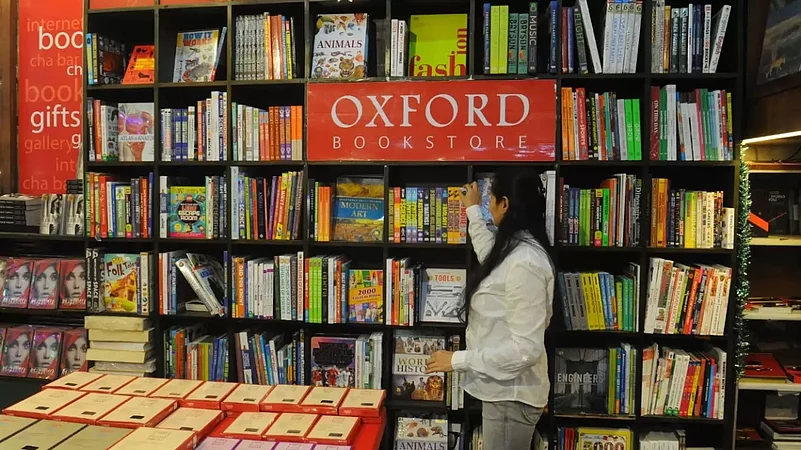
Which genres of books draw more people to the store?
I think poetry readership is only 3 per cent. It has always been small. Fiction and non-fiction sales have been more or less static. Of course, self-help books have become quite popular in recent years, like books on yoga and meditation, for example. But our curation of books does not depend on sales trends. Even if poetry readership is only 3 per cent, we have a poetry section and we are doing poetry events.
Smaller bookstores mostly keep bestsellers that they can sell quickly. But we want to offer a 360 degree view. We believe in serving the underdog. For us, more important than what is selling is what we think we need to promote. For example, currently we are trying to promote regional literature translated into English. We are prominently displaying such books and planning events with the authors.
What do you consider the biggest achievement of Oxford Bookstore?
Recently, during my visit to Qatar for the football World Cup, I got an invitation to visit the national library of Qatar. The president of the library had invited me. It’s a huge library designed by one of the best architects in the world. When I visited, I realised that what they do at the national library with millions of dollars are all being done in our stores —the range of books, the events around books and the cultural programmes— and at a higher frequency than theirs. We are also giving back to society. We have set up 25 libraries for underprivileged kids in slum areas and for children of sex workers. That felt like an achievement.
How does hosting the Apeejay Kolkata Literary Festival feature in the scheme of things?
It is an extension of what we have been doing at the store, only at a greater scale. Actually, we were the very first sponsors of the Jaipur Literature Festival. Then, people started asking, why were we not organising a similar festival in our own city Kolkata? And we thought, yes, right, we should do it in Kolkata. The experience and legacy of the bookstore came handy in this. After the festival became a hit, we also launched the Apeejay Bangla Sahitya Utsob, which has become another cultural event the city waits for. All these are aimed at promoting the culture of reading.









